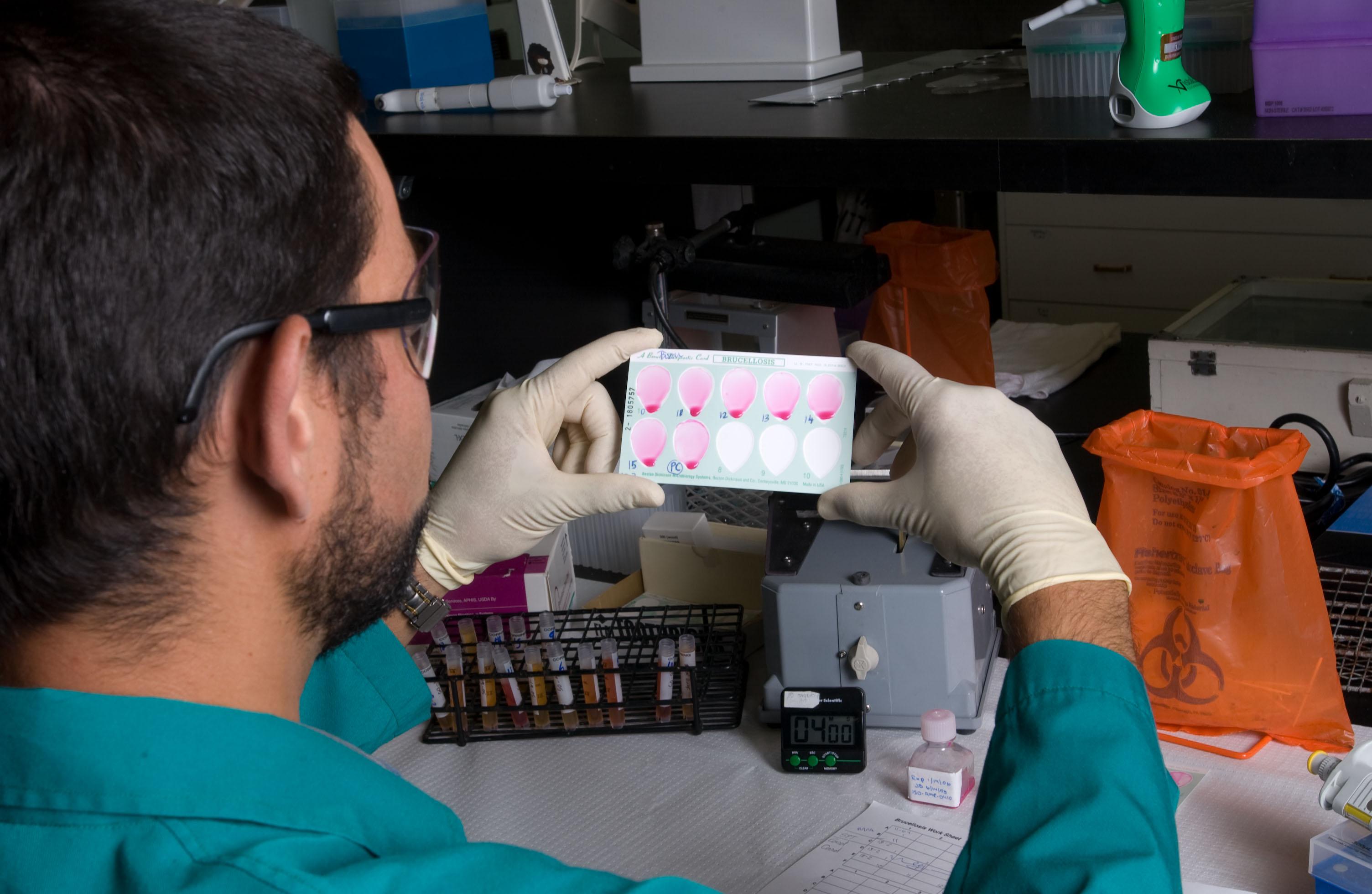Brucellosis, << `broo` suh LOH sihs, >> is an infectious disease that occurs worldwide in both human beings and animals. It is caused by bacteria called Brucella. Symptoms of brucellosis include fever, discomfort, weakness, and weight loss. The disease is also known as undulant fever and Malta fever.
Cattle, goats, and hogs are the principal carriers of brucellosis among domestic animals. Sheep, guinea pigs, chickens, dogs, and horses are less common sources. Brucellosis also occurs in many wild animals, including bison, buffaloes, caribou, chamois, deer, elk, foxes, moose, and reindeer.

Human beings can develop brucellosis either by consuming dairy products contaminated by Brucella or by working with or around infected animals or their raw meat. The disease is common among slaughterhouse workers, veterinarians, ranchers, and farmers. The bacteria enter the body through the skin or the mouth. Slaughterhouse workers may inhale airborne bacteria.
Brucellosis in humans is best prevented by controlling the disease in animals. The disease has been significantly reduced in cattle by vaccinating calves and by killing infected adult animals. Pasteurization has greatly reduced the number of brucellosis cases caused by contaminated milk. About 90 per cent of human brucellosis cases in the United States are caused by direct contact with infected animals, usually in slaughterhouses.
Doctors effectively treat human brucellosis with any of several antibiotics, including rifampin, tetracycline, and streptomycin. However, many patients suffer relapses. In addition, a patient may have the disease for months or years before proper diagnosis and treatment are established.
